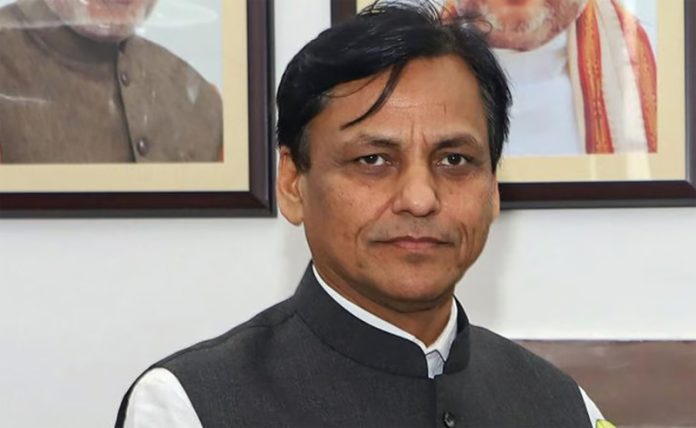‘Security situation has improved’
Excelsior Correspondent
JAMMU, Feb 7: Union Minister of State for Home Nityanand Rai today said that the security situation in J&K has significantly improved post 2019 and the Government of India continues with its policy of zero tolerance against terrorism.
In reply to a question in Parliament, Rai said that the security situation has shown a significant improvement since 2019. He stated that in 2019, the number of terrorist initiated incidents were 153 that came down to 126 in 2020, 129 in 2021 and 125 in 2022.
“In 2023, only 46 such incidents were reported,” the reply read
He said that in 2019, 102 encounters and counter terror operations took place.
“In 2020, 118 such incidents were reported followed by 100 in 2021 and 117 in 2022. In 2023, 48 such incidents were reported in J&K,” the reply read, adding that civilians 44 were killed in 2019, 38 in 2020, 41 in 2021 and 31 in 2022. “In 2023, only 14 civilians were killed in such incidents.
Eighty securitymen lost their lives in 2019, 63 in 2020, 42 in 2021 and 32 in 2022 while only 30 were killed in 2023.
Rai said that 157 terrorists were killed in 2019, 221 in 2020, 180 in 2021, 187 in 2022 and 73 in 2023.
In response to another question in the Rajya Sabha, Rai said that an investment of over Rs 5600 crore has been made in various sectors of Jammu and Kashmir since the abrogation of Article 370 in 2019.
He said the Government has notified the New Central Sector Scheme for Industrial Development of Union Territory of Jammu & Kashmir on 19/02/2021 so as to attract investors to make capital investments.
This has been supplemented by the policies/schemes, to boost investment in the UT of Jammu and Kashmir, which include, J&K Industrial Policy 2021-30, J&K Industrial Land Allotment Policy, 2021-30, J&K Private Industrial Estate Development Policy 2021-30, Policy for Promotion of Foreign Investment in Industrial Sector in J&K, 2022, J&K Single Window Rules, 2021, Turnover Incentive Scheme, 2021, J&K Wool Processing, Handicrafts and Handloom Policy, 2020, Financial Support Scheme for Cooperatives/Self Help Groups, 2020, Credit Card Scheme for Artisans and Weavers, 2020 and Kharkhandar Scheme for Development of Craft Sector in J&K, 2021, Revised Education Scheme 2022 for Artisans/Weavers of Handicrafts and Handloom Department and Export Subsidy Scheme, 2021.
Rai further said that the investments in various sectors like tourism, processing etc. and infrastructure such as construction, roads, power etc. will boost the development of Union Territory of Jammu and Kashmir.
He further said that before abrogation of Article 370, J&K residents were deprived of the benefits of number of progressive laws but now they are enjoying rights available to citizens of other parts of the country.
In reply to another question, Rai said that after abrogation of Article 370 and application of all the provisions of Constitution of India, the Central Laws which were earlier not applicable to erstwhile State of Jammu and Kashmir, were made applicable and are implemented in the Union Territory.
“After abrogation of Article 370 all the progressive laws such as the Right of Children to Free and Compulsory Education Act, 2009, the Right to Fair Compensation and Transparency in Land Acquisition, Rehabilitation and Resettlement Act, 2013, the Scheduled Tribes and other Traditional Forest Dwellers (Recognition of Forest Rights) Act, 2006, the Scheduled Castes and Scheduled Tribes (Prevention of Atrocities) Act, 1989, the Whistle Blowers Protection Act, 2014, the Juvenile Justice (Care and Protection of Children) Act, 2015, the National Commission for Minorities Act, 1992, The National Commission for Safai Karamcharis Act, 1993 etc. have been extended to Jammu and Kashmir,” he said.
The Minister said that now, residents of J&K are enjoying rights which are available to citizens in other parts of the country.


